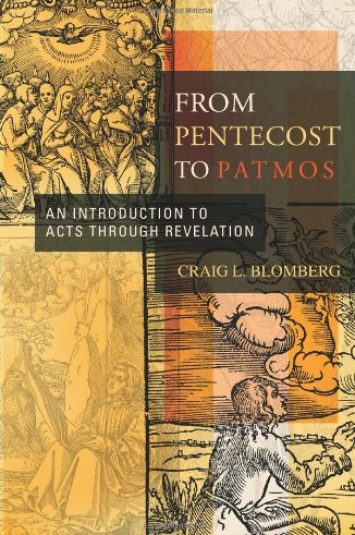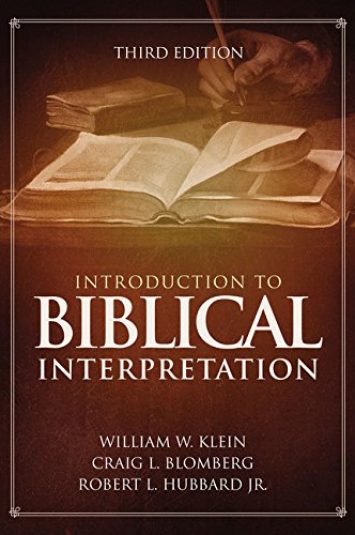





Antioch School of Ministry (ASM)
ASM, Biblical Mandate
“Be diligent to present yourself approved to God, a worker who does not need to be ashamed, rightly dividing the word of truth.”. 2 Timothy 2:15 (NKJV)
Welcome to Antioch School of Ministry (ASM), a ministry of Christian Union Theological Seminary, (CUTS). Antioch School of Ministry , is a ministerial training and education institution composed of two (3) schools in one, The School of Ministry, The School of Missions and The School of Biblical Evangelism (SBE). We the staff, and the faculty are very excited about the opportunity to serve you.
2 Timothy 2:15 It says: Be diligent to present yourself approved to God, a worker who does not need to be ashamed, rightly dividing the word of truth. It is exciting to witness a group of individuals, who are willing to sacrifice their time and their energies to become all that God has set them to be. God never intended for us to be a weak and defeated body. He intended for us to be powerful and victorious
The Call to Ministry
“Ministry” is from the Greek word diakoneo, meaning “to serve” or douleuo, meaning “to serve as a slave.” In the New Testament, ministry is seen as service to God and to other people in His name. Jesus provided the pattern for Christian ministry—He came, not to receive service, but to give it (see Matthew 20:28; Mark 10:45; John 13:1-17).
The Christian should minister by meeting people’s needs with love and humility on Christ’s behalf (see Matthew 20:26; Mark 10:43; John 2:5,9; Acts 6:3; Romans 1:1; Galatians 1:10; Colossians 4:12). Christians are to minister to others out of their devotion to Christ and their love for others, whether the other people are believers or unbelievers. Ministry to others should be impartial and unconditional, always seeking to help others as Jesus would.
The ministry in our day has taken on more of a vocational meaning as we call pastors “ministers” to full-time service. Pastors do spend their lives in the ministry, they do minister to others, and they can rightly be designated as ministers, but pastors are not the only ones who are to be involved in ministry. From the early New Testament churches to the churches of our day, each Christian should be in the ministry of helping others (see Romans 12:3-8, 10-13; 2 Timothy 2:24-26).
The content of ministry seems to prioritize the ministering in spiritual things, not just practical things. Ministry should certainly place emphasis on sharing the Gospel of Jesus Christ with others so they can come to know Him and receive Him as personal Savior, go on to experience Him as Lord of their life, and go even further to know Christ as the essence of their Life (see John 1:12; Colossians 2:6-7; Galatians 2:20; Philippians 3:8-10). Ministry can, and should, include ministering to the physical, emotional, mental, vocational, and financial needs of others. Jesus did, and so should we!
Preparation for the Ministry
Anyone who senses the leading of the Lord to enter the Christian ministry or any field of Christian service should seek confirmation of that guidance through meditation upon God’s Word and prayer.
The desire to enter full-time Gospel ministry should be a God-given urge and passion to seek out the lost, win them for Christ, and nurture them within the church. Paul expressed it this way, “Woe to me if I do not preach the gospel” (1 Corinthians 9:16).
Preparation should begin immediately through a personal habit of daily devotions, Bible study, and prayer. Loyalty in church attendance and active participation in Christian service are essential. Counsel and prayer with pastors and church leaders are also vital. Perhaps your pastor could suggest a program of reading and study in those areas he would consider most helpful. Trust the Lord to lead you in further training at a Bible college or seminary of His choice.
Your pastor or church leaders should be able to give you specific information on the process of obtaining credentials for ministry within your particular church or denomination. You might also contact officials at a Bible college or seminary that you are interested in.
As you explore God’s plan for your ministry, remember the wonderful promise of Proverbs 3:5-6: “Trust in the Lord with all your heart and lean not on your own understanding; in all your ways acknowledge him, and he will make your paths straight.”
How do I know if I am Called?
In the most basic sense, all Christians are called to ministry. The Great Commission (Matthew 28:18-20) applies to all believers. Too, every Christian is part of the Body of Christ. Fulfilling one’s role as part of the Body – no matter what that role is – means ministering to others. However, most people who ask this question are really interested in whether they are called to vocational ministry, such as the pastorate. This is an excellent question. Certainly, vocational ministry has unique demands.
In confirming any calling, it is important to first examine your heart and motivation (Jeremiah 17:9). Do you truly feel this call is from God, or is it a personal desire? Or is it an attempt to live up to someone else’s expectation of you? If the motivation is pride or people-pleasing, you should give pause. Are you feeling “called” because you think that in order to be “most Christian” you must work in a distinctly “Christian” ministry? Christians are the fragrance of Christ (2 Corinthians 2:15) no matter where they serve. You can be light and salt and “do ministry” outside the church or in a secular job just as well as you can within the church or in a distinctly Christian vocation.
The Call From the Biblical Point of View
The greatest honor that can come to any person is to be set aside by the Holy Spirit to serve Jesus Christ with all of his life. These people are identified as those who are in the professional ministry. Today they are pastors, assistant pastors, evangelists, missionaries, Bible teachers in colleges, and others who serve in full-time ministry; by which they are supported financially full-time. In the Old Testament, the high priests were full-time servants. “No man taketh this honor unto himself, but he that is called of God, as was Aaron” (Heb. 5:4). This verse gives us insight into full-time Christian service. In the Old Testament a priest had to be born into the tribe of Levi, but not every Levite became a priest. Only those who were called of God were set aside for actual service in the temple.
Barnabas and Paul were called of God to full-time Christian service. Remember even at Paul’s conversion it was indicated that he would be a unique servant and messenger to the gentiles (Acts 9:15-16). However, after 14 years of learning and apprenticeship-by serving Jesus Christ in the churches at Damascus, Tarsus and Antioch-Paul was ready to be separated into full-time Christian service. We read the account, “”As they ministered to the Lord, and fasted, the Holy Ghost said, Separate me Barnabas and Saul for the work whereunto I have called them”” (Acts 13:2). Note that these two men who were called into full-time Christian service were actively involved in serv-ing Jesus Christ. The call did not come to two unconcerned high school boys who were sitting on the last pew in the church. These were active church leaders who were called into full-time service.
A second part of the call is that they were to be separated, indicating they were no longer considered laymen. A third part of the call to fulltime services was accompanied with self-examination and searching the mind of the Lord. Barnabas and Saul were fasting and praying to the Lord when they were called. A last part of the call is that it came from the Holy Spirit. No man can issue the call to himself. He can desire the office of a bishop (1 Tim. 3:7), but the call of God comes from the Holy Spirit.
Be Diligent to Present yourself Approved to God
After commenting about false teachers in the previous verse, Paul urges Timothy to view himself as a worker seeking to please God. Any worker or servant should desire to satisfy the expectations of his or her boss. Timothy was to view his work for God in the same way. He was not serving to please other people, but to please the Lord. Paul knew well the many ways the world can distract a Christian’s focus. These worldly forces would seek to draw Timothy’s attention to making people happy, rather than viewing the Lord as the one to please.
Timothy’s challenge is not only to be approved, but to be a worker “who has no need to be ashamed.” Paul had already spoken of not being ashamed on three occasions in the previous chapter (2 Timothy 1:8, 12, 16). During times of suffering, Paul felt the need to emphasize boldness in faith to those tempted to avoid hardship and persecution. His boldness also involved “rightly handling the word of truth.” In contrast with the false teachers who argued over words, Timothy had learned the Scriptures from his youth and was to handle it accurately.
The distinction presented here is important. In the prior verse, Paul condemned pointless bickering. Here, he commends deeper study. Putting these two ideas together gives us an accurate picture of what Christian discernment is meant to look like. There are some issues which involve the “soundness” of the gospel message, and others which do not. We need to study diligently, not only to defend the faith, but to know the difference between something worth battling over, and something which is just a distracting argument.

Higher Ministerial Education
ANTIOCH SCHOOL OF MINISTRY (ASM) Offers THREE NEW LEVELS of Concentrations!
These levels are designed to meet your professional and ministry-related needs so you can make a difference for Christ and His Church. We have a place for you in this exciting and challenging mission! If you take the time to go through all sections of our website, you will find the answers to all the questions you may have. We believe this is the best way for us to bring glory to Christ, and to impact your life for eternity. ASM is an institution dedicated to the preparation and training of pastors and ministerial leaders.
Truly here in ASM and its branches, our passion is to know God and to reveal it to others through the teaching of the Word. Please fill out the form at the home page to request more information. If you have a call to the ministry, the Antioch School of Ministry (ASM) offers the MINISTERIAL TRAINING program, through our Virtual Classroom in 4 Semesters, 45 subjects in total. Hurry up and enroll in the courses offered on the scheduled dates and start your training to complete the 45 academic curriculum subjects. At the end you will be awarded the Diploma in Ministry, validated in 60 credits for studies in ministry at the Christian Union Theological Seminary (CUTS).

AS-MINISTRY
Welcome to the Antioch School of Ministry! (ASM). We the staff, and the faculty are very excited about the opportunity to serve you. 2 Timothy 2:15 says: Strive diligently to present yourself approved to God, a worker who has nothing to be ashamed of, who uses the word of truth

SB-EVANGELISM
At the School of Biblical Evangelism (SBE), you will learn practical strategies for proclaiming the gospel, with an emphasis on Evangelistic Preaching and preparing your church to follow up on new believers. The course of study is self-taught, and you have 180 days from when you register to complete it.

AS-MISSIONS
Antioch School of Missions (ASM) trains and prepares candidates called to carry out the work of the missionary ministry, both nationally as well as worldwide. Prepare the church new candidates for this call. They learn the Who, the What, the Why and the How; of this very important ministry.
Antioch School of Ministry - Required Readings
Spend more time reading studying and less time figuring out what to read. Choose from four monthly readings, vetted by cool Christian authors people with great taste. We know how to pick ’em. Start reading today!
From Pentecost to Patmos
In the same style as that first acclaimed and widely used volume, the author goes deep into the biblical writings of Acts through Revelation, helping serious Bible students to better understand the historical, linguistic, and theological
Introduction to Biblical
Drawing on a lifetime of pastoral experience, The Care of Souls is a beautifully written treasury of proven wisdom which pastors will find themselves turning to again and again.
The Care of Souls
God has called you to ministry…now what? Understand your calling with What the Bible Says to the Minister. From the makers of The Preacher’s Outline & Sermon Bible comes a new edition of What the Bible Says to the Minister.




